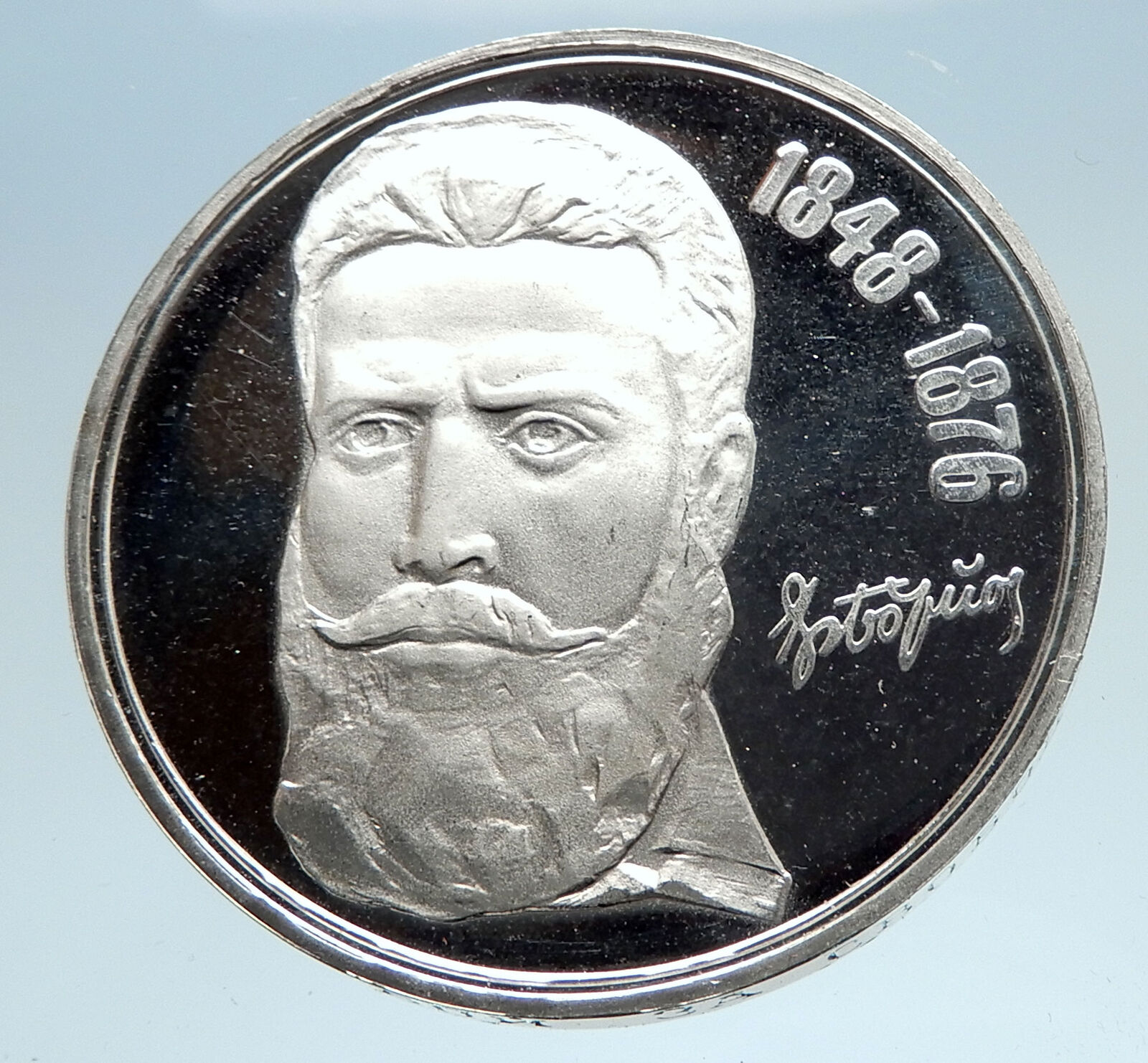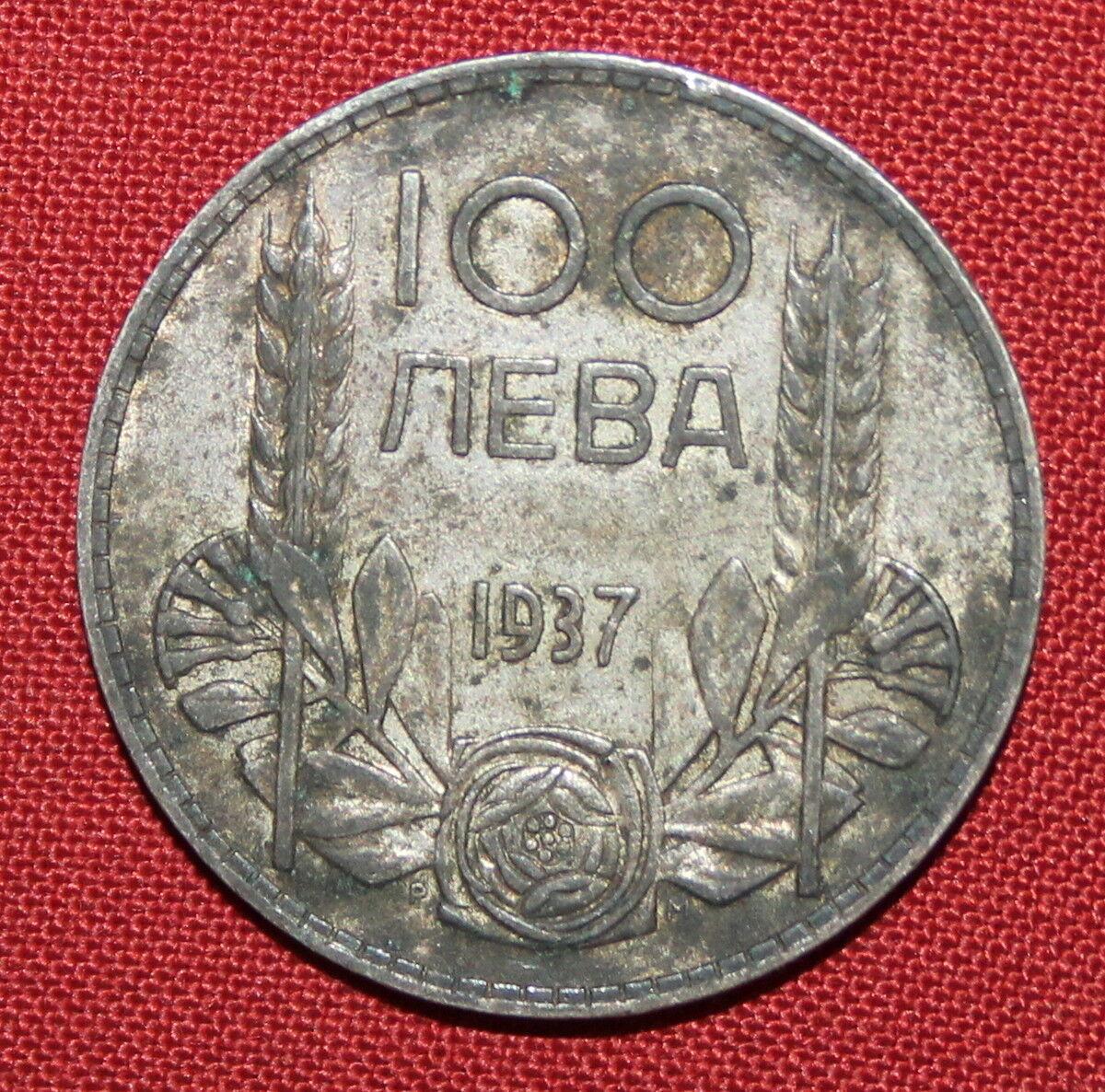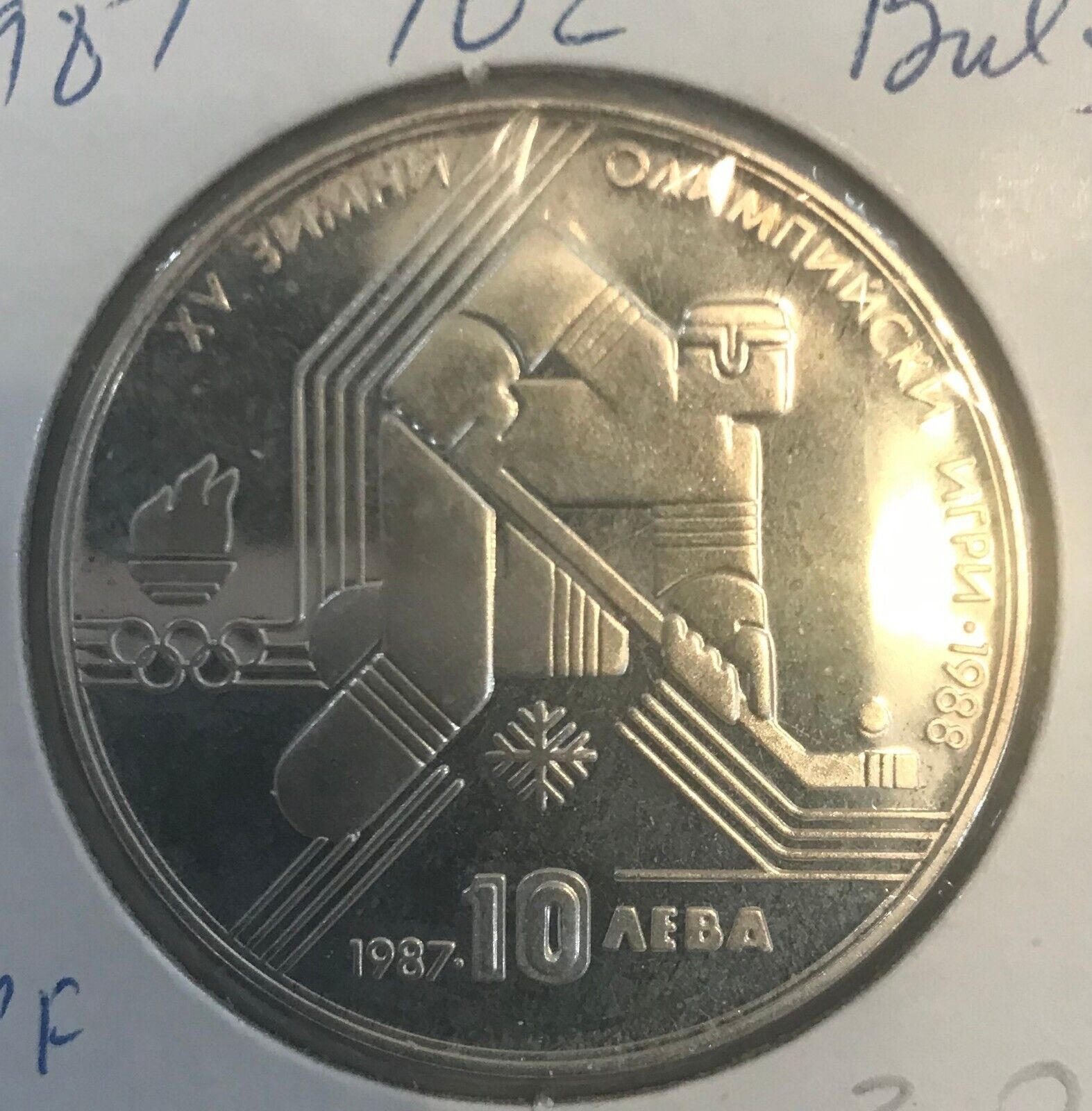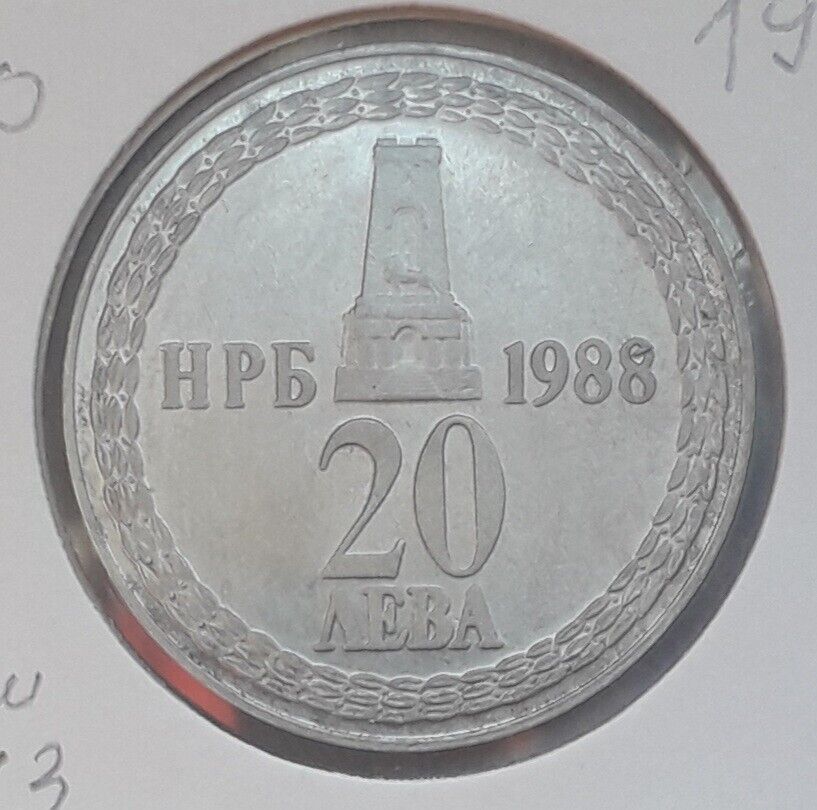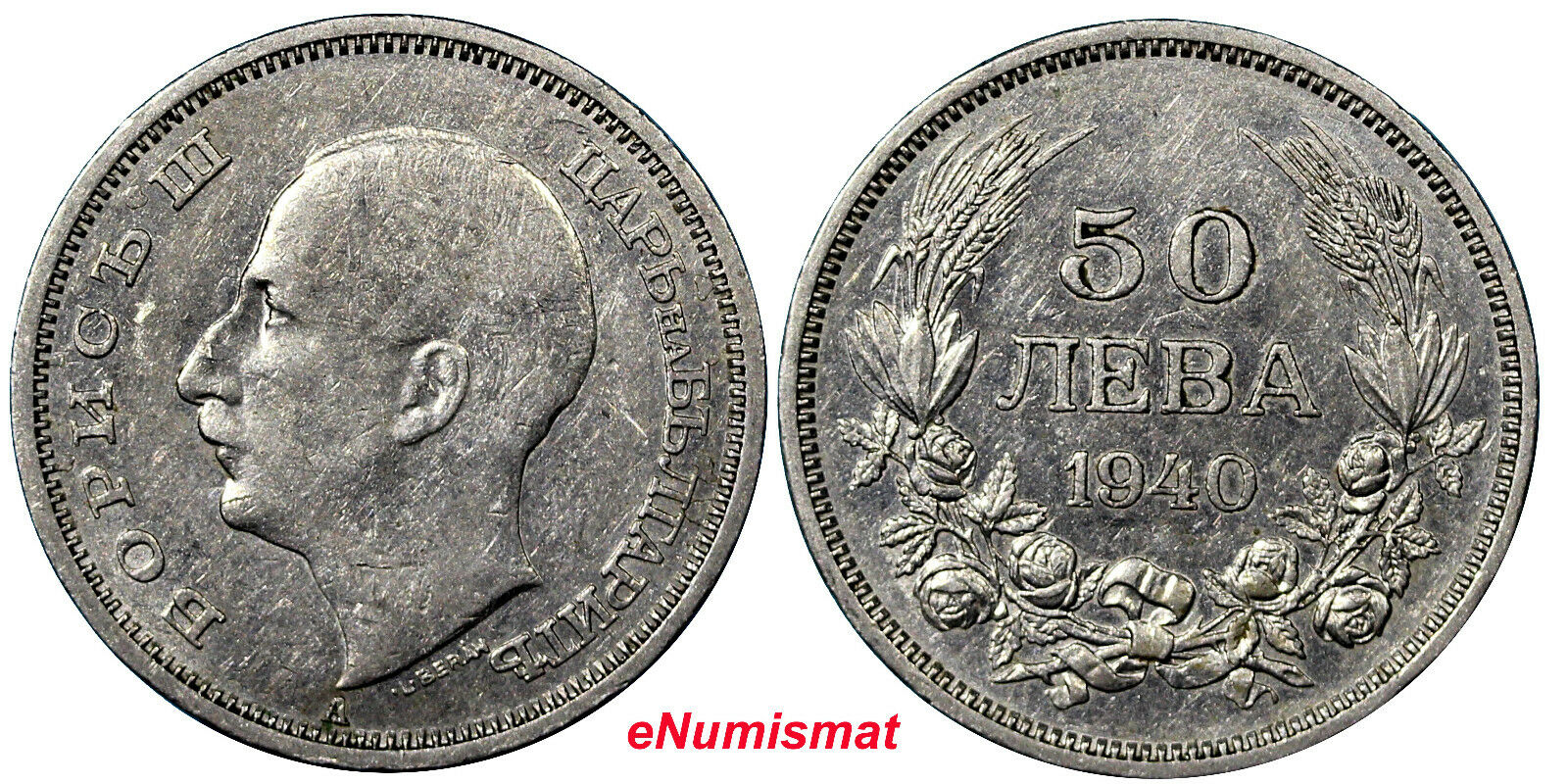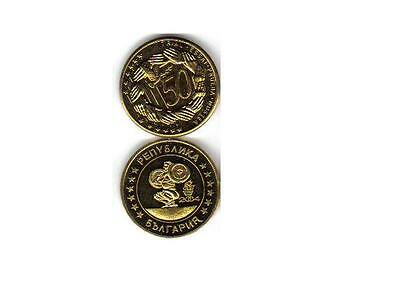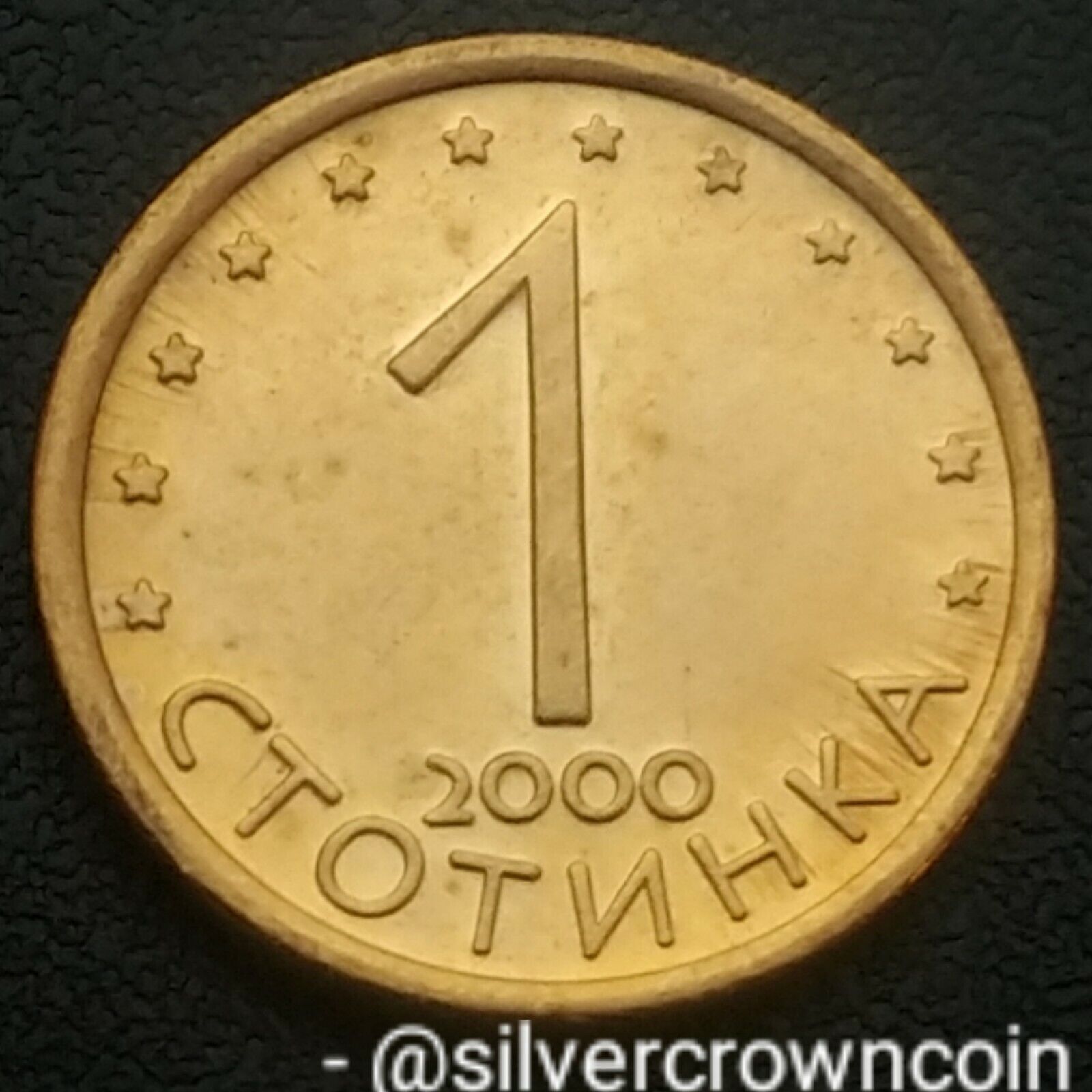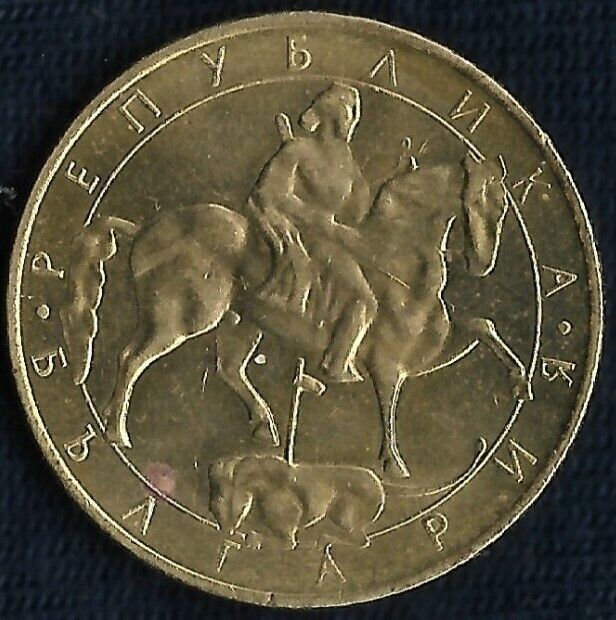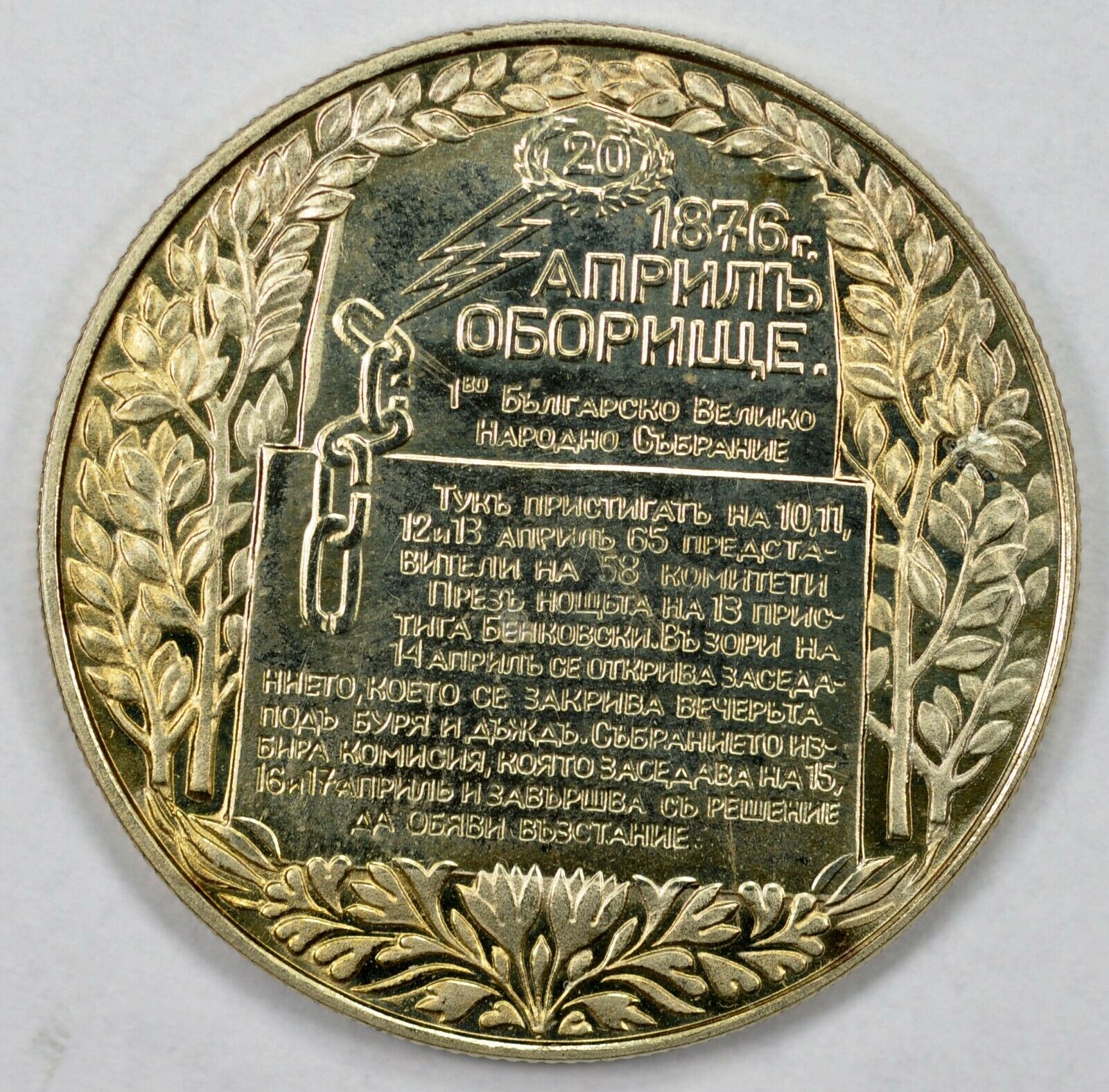-40%
1976 BULGARIA with Khristo Botev National Hero Genuine Silver 5 Leva Coin i74965
$ 73.28
- Description
- Size Guide
Description
Item:i74965
Authentic Coin of:
Bulgaria
- 100th Anniversary of the Death of Khristo Botev
1976
Silver 5 Leva 35mm (
20.43
grams) 0.900 Silver (0.5932┬Ā oz. ASW)
Reference: KM# 96
ąØąÉąĀą×ąöąØąÉ ąĀąĢą¤ąŻąæąøąśąÜąÉ ąæą¬ąøąōąÉąĀąśą» 1976 5 ąøąĢąÆąÉ, Coat of arms of People's Republic of Bulgaria. 1848-1876, Portrait of Khristo Botev.
Edge Lettering: ąóą×ąŚ, ąÜą×ąÖąóą× ą¤ąÉąöąØąĢ ąÆ ąæą×ąÖ ąŚąÉ ąĪąÆą×ąæą×ąöąÉ, ąóą×ąÖ ąØąĢ ąŻą£ąśąĀąÉ
You are bidding on the exact item pictured, provided with a Certificate of Authenticity and Lifetime Guarantee of Authenticity.
Hristo Botev
(Bulgarian: ąźčĆąĖčüč鹊 ąæąŠč鹥ą▓, also transliterated as
Hristo Botyov
) (6 January 1848┬Ā[O.S. 25 December 1847]┬Ā- 2 June┬Ā[O.S. 20 May]┬Ā1876), born
Hristo Botyov Petkov
(Bulgarian: ąźčĆąĖčüč鹊 ąæąŠčéčīąŠą▓ ą¤ąĄčéą║ąŠą▓), was a Bulgarian poet and national revolutionary. Botev is widely considered by Bulgarians to be a symbolic historical figure and national hero.
Botev was born in Kalofer (some historians suggested that he was born in Karlovo and after several days was brought to Kalofer). His father, Botyo Petkov (1815-1869), was a teacher and one of the most significant figures of the late period of the Bulgarian National Revival towards the end of the Ottoman occupation. He had a strong influence on his son during the latter's youth.
In 1863, after completing his elementary education in Kalofer, Botev was sent by his father to a high school in Odessa. While there, he was deeply impressed by the work of the liberal Russian poets of the day. He left high school in 1865 and spent the next two years teaching in Odessa and Bessarabia. In the meantime he began creating his first poetic works and also established strong connections with the Russian and Polish revolutionary movement. His political views soon started to take shape.
Botev returned to Kalofer at the beginning of 1867, where he temporarily replaced his ill father as a teacher. In May, during the festivities celebrating Saints Cyril and Methodius (it was his father who first organized at the end of the school year such festivities which today correspond to Bulgaria's national holiday on 24 May), he made a public speech against the Ottoman authorities and the wealthy Bulgarians (whom he alleged were collaborating with the Ottomans). Botev was pressed into leaving the town as a result. He initially decided he would return to Russia, but due to lack of money instead opted for Romania, at the time an asylum for many Bulgarian exiles.
Exile
For some time he lived in an abandoned mill near Bucharest with Vasil Levski, the eventual leader of the Bulgarian insurgency, and the two of them initially became close friends. Later he would describe this period in his works.
From 1869 to 1871 Botev worked again as a teacher in Bessarabia, keeping close relations with the Bulgarian revolutionary movement and its leaders. In June 1871 he became editor of the revolutionary emigrant newspaper "Word of the Bulgarian Emigrants" (
Duma na bulgarskite emigranti
), where he began publishing his early poetic works. Imprisoned for some months, due to his close collaboration with the Russian revolutionaries, Botev started working for the "Liberty" (
Svoboda
) newspaper, edited by the eminent Bulgarian writer and revolutionary Lyuben Karavelov. In 1873 he also edited the satiric newspaper "Alarm clock" (
Budilnik
), where he published a number of feuilletons, aimed at those wealthy Bulgarians, who did not take part in the revolutionary movement.
The Bulgarian revolutionary movement was put in danger with the capture of Vasil Levski by Ottoman authorities at the end of 1872. At the time Levski was the indisputable leader of the Bulgarian insurgency. He had established a net of revolutionary committees, supervised by the Bulgarian Central Revolutionary Committee (BCRC; In Bulgarian: ąæąĀą”ąÜ) located in Romania, which had the task of preparing the Bulgarian revolutionaries for the future general uprising against the Ottoman rule. Levski was brought to trial, sentenced to death by hanging and executed on 19 February 1873. His death was a serious blow to the morale of the revolutionary movement.
With Levski's death the BCRC was divided in two factions: Botev and his supporters including Stefan Stambolov and Panayot Hitov backed the idea that preparations should be started for an immediate uprising, while the moderate revolutionaries, led by Lyuben Karavelov, thought that it was too early for such actions. Botev intended to start an uprising in the first possible moment, to take advantage of the international situation (the mounting tension between the Ottoman Empire on one side, and Serbia and Russia on the other), as well as the fact that the revolutionary net, established by Levski, was still relatively intact and could take an active part in the preparations. The revolt in Bosnia and Herzegovina of 1875 was another factor that inspired Botev and Stambolov that a rebellion should start in Bulgaria as well. They thought that the greater the turmoil in the Balkans was, the more attention they will attract among the Great powers. In the beginning of August 1875 Karavelov already quite ill stepped down as president of BCRC and Botev was elected the new president. Led by the thought that the Bulgarian people were ever ready for a rebellion he thought that no careful preparations were needed. This resulted in the unsuccessful Stara Zagora Uprising of September 1875.
Death
In the beginning of 1876 the Bulgarian revolutionary ├®migr├®s in Romania were convinced that a general armed uprising of Bulgarians against Ottoman occupation was imminent. In April 1876 the ├®migr├® community in Bechet decided to organise an armed company to cross the Danube and take part in the expected uprising. The organisers (known within the movement as "apostles") of the planned insurgency in the 3rd Revolutionary District centred in Vratza, who had crossed into Romania to try to solicit additional support from the Bulgarian expat community, met with Botev and convinced him that the planned guerrilla company would be best employed in their area. While busily recruiting and arming fighters they were reached by the news that the insurgency had prematurely started.
The recruiters tried to secure an experienced Bulgarian guerrilla leader (known as voivoda) as commander, but the two who were approached refused for political reasons. Thus, Botev himself, though lacking combat experience, took overall command of the company. Military expertise was provided by Nikola Voinovski (1849-1876), a graduate of the Emperor Nicholas Military Academy, who had previously held the rank of lieutenant in the Russian army. Due to time restraints and the need for secrecy the company did not undergo any formal combat training as a unit and had to rely on the individual fighting skills and experience of its members. The news of the uprising brought new urgency to the preparations and on 16 May 1876 (in the then used Julian calendar) the 205-strong company was finally equipped and ready to deploy.
Botev devised an ingenious plan for crossing into the Empire without immediately alerting either the Romanian or the Ottoman authorities. The rebels disguised as gardeners boarded in groups at several Romanian ports the Austro-Hungarian passenger steamship Radetzky. When the last group was taken on board at Bechet the rebels retrieved their concealed weapons and seized control of the ship. (This incident was later commemorated in a popular poem and song.) Botev confronted the captain Dagobert Engl├żnder, stated his intent to reach the Ottoman side of the Danube and explained the political motivation behind his actions. Engl├żnder was so moved by Botev's impassioned speech that he rendered full support and even later refused to cooperate with the Ottoman authorities who requested the use of his ship to pursue the rebel company.
Botev disembarked near Kozloduy and, together with every member of the company, ritualistically kissed the soil of the Homeland. As the rebels proceeded inland, they gradually realised, that despite previous misleadingly enthusiastic messages by the local "apostles", the 3rd Revolutionary District had not risen. Furthermore, due to the violent suppression of the uprising proceeding elsewhere in the Bulgarian-populated territories, the entire Ottoman military machine, including regular army garrisons and irregular bashi-bazouks, was mobilised and thickly patrolling the area. Botev and his staff officers decided to press on to the comparative safety of the Vratza Mountains while trying to rouse the Bulgarian population on their way. The population intimidated by the overwhelming Ottoman military presence refused to be incited into any overt sign of rebellion.
The company almost immediately became the focus of incessant bashi-bazouk attacks. Voinovski displayed some excellent defensive tactics helped by the still high morale and discipline of the company. On 18 May the massing bashi-bazouks caught up with the company in force and Botev had to go to ground on the Milin Kamak Hill some 50┬Ākm from the Danube. Under Voinovski's skilful command the rebels managed to hold off the numerically superior Ottoman irregulars without taking serious casualties until the arrival of two Ottoman companies of regular troops. The regulars, using two light artillery pieces and their superior rifles, managed to inflict heavy casualties among the rebels from a safe distance, but their three attempts to follow up with frontal charges were repulsed by disciplined rebel fire. The Ottoman company lost about 30 killed or wounded. According to their custom the Ottomans ceased hostilities at nightfall, and the rebels split into two groups and managed to slip through the enemy lines to continue their forced march towards the mountains.
The next day passed without sighting the enemy, but at this point it was obvious that no local reinforcements could be expected. On the morning of 20 May, the sentries detected advancing bashi-bazouks and 5 companies of regular Ottoman troops. The men immediately took strong positions near Mount Okoltchitza. The defense was divided into two sectors, one commanded by Voinovski and the other by Botev. Soon two battalions of enemy regulars, led by Hassan Hairi Bey, assaulted Voinovski's fighters, while the bashi-bazouks concentrated on Botev's position. Voinovski's men, with concentrated fire, inflicted heavy losses on the advancing enemy and countered their attempts at encirclement. In their turn Botev's men repelled several bashi-bazouk attacks and drove the enemy back with a counterattack. At dusk the fighting died down as the Ottomans again withdrew for the night. The rebels lost about 10 killed, and many were wounded in the day's fighting. It was at this point, at dusk on 20 May 1876 (in the Julian calendar, equivalent to 2 June 1876 in today's Gregorian calendar), that a single bullet, most probably fired by a concealed Ottoman sharpshooter, hit Botev in the chest, killing him instantly. After the death of their leader and chief inspiration, the company suffered a serious drop in morale and began to disperse. Very few managed to evade capture or death. In all, 130 company members were killed and most of the others captured and imprisoned or executed.
Botev was survived by his wife, Veneta, daughter, Ivanka, and stepson, Dimitar.
Bulgaria
(Bulgarian: ąæčŖą╗ą│ą░čĆąĖčÅ, tr.
BŪÄlgariya
), officially the
Republic of Bulgaria
(Bulgarian: ąĀąĄą┐čāą▒ą╗ąĖą║ą░ ąæčŖą╗ą│ą░čĆąĖčÅ, tr.
Republika BŪÄlgariya
, IPA:┬Ā[r╔ø╦łpublik╔É b╔É╔½╦ł╔Īarij╔É]), is a country in southeastern Europe. It is bordered by Romania to the north, Serbia and Macedonia to the west, Greece and Turkey to the south, and the Black Sea to the east. With a territory of 110,994 square kilometres (42,855┬Āsq┬Āmi), Bulgaria is Europe's 16th-largest country.
Organised prehistoric cultures began developing on current Bulgarian lands during the Neolithic period. Its ancient history saw the presence of the Thracians, Ancient Greeks, Persians, Celts, Romans, Goths, Alans and Huns. The emergence of a unified Bulgarian state dates back to the establishment of the First Bulgarian Empire in 681 AD, which dominated most of the Balkans and functioned as a cultural hub for Slavs during the Middle Ages. With the downfall of the Second Bulgarian Empire in 1396, its territories came under Ottoman rule for nearly five centuries. The Russo-Turkish War of 1877-78 led to the formation of the Third Bulgarian State. The following years saw several conflicts with its neighbours, which prompted Bulgaria to align with Germany in both world wars. In 1946 it became a one-party socialist state as part of the Soviet-led Eastern Bloc. In December 1989 the ruling Communist Party allowed multi-party elections, which subsequently led to Bulgaria's transition into a democracy and a market-based economy.
Bulgaria's population of 7.2 million people is predominantly urbanised and mainly concentrated in the administrative centres of its 28 provinces. Most commercial and cultural activities are centred on the capital and largest city, Sofia. The strongest sectors of the economy are heavy industry, power engineering, and agriculture, all of which rely on local natural resources.
The country's current political structure dates to the adoption of a democratic constitution in 1991. Bulgaria is a unitary parliamentary republic with a high degree of political, administrative, and economic centralisation. It is a member of the European Union, NATO, and the Council of Europe; a founding state of the Organization for Security and Co-operation in Europe (OSCE); and has taken a seat at the UN Security Council three times.
Frequently Asked Questions
Mr. Ilya Zlobin
, world-renowned expert numismatist, enthusiast, author and dealer in authentic ancient Greek, ancient Roman, ancient Byzantine, world coins & more.
Who am I dealing with?
You are dealing with Ilya Zlobin, ancient coin expert, enthusiast, author and dealer with an online store having a selection of over 15,000 items with great positive feedback from verified buyers and over 10 years experience dealing with over 57,000 ancient and world coins and artifacts. Ilya Zlobin is an independent individual who has a passion for coin collecting, research and understanding the importance of the historical context and significance all coins and objects represent. Most others are only concerned with selling you, Ilya Zlobin is most interested in educating you on the subject, and providing the largest selection, most professional presentation and service for the best long-term value for collectors worldwide creating returning patrons sharing in the passion of ancient and world coin collecting for a lifetime.
How long until my order is shipped?
Orders are shipped by the next business day (after receipt of payment) most of the time.
How will I know when the order was shipped?
After your order has shipped, you will be left positive feedback, and that date could be used as a basis of estimating an arrival date. Any tracking number would be found under your 'Purchase history' tab.
USPS First Class mail takes about 3-5 business days to arrive in the U.S. International shipping times cannot be estimated as they vary from country to country.
Standard international mail to many countries
does not
include a tracking number, and can also be slow sometimes.
For a tracking number and signature confirmation, you may want to do Express Mail International Shipping, which costs more, however, is the fastest and most secure. Additionally you may be able to receive your order in as little as 3-5 business days using this method. For Express Mail International, it may be possible to place up to 10-15 items in one package (for the one shipping cost) as it is flat rate envelope, which may be the most cost-effective, secure and fastest way to receive items internationally. Send me a message about this and I can update your invoice should you want this method.
Getting your order to you, quickly and securely is a top priority and is taken seriously here.
Great care is taken in packaging and mailing every item securely and quickly.
Please be aware, I cannot take responsibility for any postal service delivery delays, especially for international packages as it may happen in rare instances.
What is a certificate of authenticity and what guarantees do you give that the item is authentic?
Each of the items sold here, is provided with a Certificate of Authenticity, and a Lifetime Guarantee of Authenticity, issued by a world-renowned numismatic and antique expert that has identified over 57,000 ancient coins and has provided them with the same guarantee. You will be very happy with what you get with the COA; a professional presentation of the coin, with all of the relevant information and a picture of the coin you saw in the listing. Additionally, the coin is inside it's own protective coin flip (holder), with a 2x2 inch description of the coin matching the individual number on the COA.
On the free-market such a presentation alone, can be considered a - value all in itself, and it comes standard with your purchases from me,
FREE.
With every purchase, you are leveraging my many years of experience to get a more complete context and understanding of the piece of history you are getting. Whether your goal is to collect or give the item as a gift, coins presented like this could be more prized and valued higher than items that were not given such care and attention to.
Buy a coin today and own a piece of history, guaranteed.
Is there a money back guarantee?
I offer a 30 day unconditional money back guarantee. I stand behind my coins and would be willing to exchange your order for either store credit towards other coins, or refund, minus shipping expenses, within 30 days from the receipt of your order. My goal is to have the returning customers for a lifetime, and I am so sure in my coins, their authenticity, numismatic value and beauty, I can offer such a guarantee.
When should I leave feedback?
Once you receive your order, please leave a positive feedback. Please don't leave any negative feedbacks, as it happens sometimes that people rush to leave feedback before letting sufficient time for their order to arrive. Also, if you sent an email, make sure to check for my reply in your messages before claiming that you didn't receive a response. The matter of fact is that any issues can be resolved, as reputation is most important to me. My goal is to provide superior products and quality of service.
How and where do I learn more about collecting ancient coins?
Visit the "
Guide on How to Use My Store
" for on an overview about using my store, with additional information and links to all other parts of my store which may include educational information on topics you are looking for.
